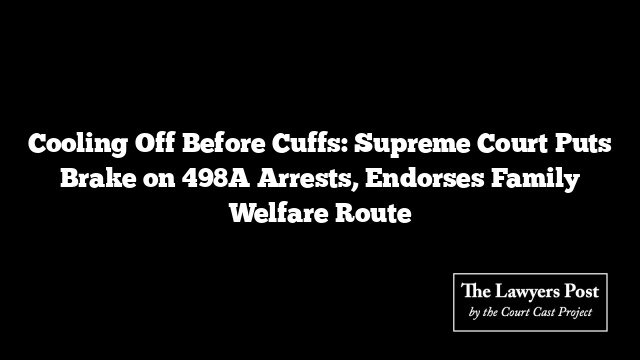In a move aimed at cooling hasty law-enforcement responses, the Supreme Court has given its seal of approval to guidelines that pause arrests under Section 498A for a two-month window, steering cases instead toward Family Welfare Committees. By adopting the Allahabad High Court’s framework, the top bench seeks to transform adversarial disputes into mediated conversations before coercive measures are deployed.
Under this approach, once a complaint alleging cruelty is filed, police must defer arrest for sixty days. During that period, the aggrieved parties will be invited to engage with a committee—composed of legal experts, mental health professionals and social workers—tasked with exploring reconciliation, financial settlements or other non-judicial remedies. Only if the committee’s efforts fall flat would an arrest become permissible.
The court underscored the importance of striking a balance between protecting genuine victims of domestic violence and guarding against potential misuse of the law. “We are not diluting the protective fabric of Section 498A,” the bench observed, “but equally committed to ensuring that its shield is not wielded as a sword for extraneous ends.”
Early proponents of this protocol argue that it preserves dignity, reduces courtroom backlogs and fosters lasting resolutions. Critics caution, however, that the success of the scheme hinges on the committees’ impartiality, resources and true neutrality.
Moving forward, all High Courts have been directed to incorporate these mediation‐first guidelines into their procedural manuals. Legal circles will now watch closely how police forces implement the holding period, whether committees can handle the influx of referrals, and if victims feel adequately supported outside the shadow of immediate arrest.





